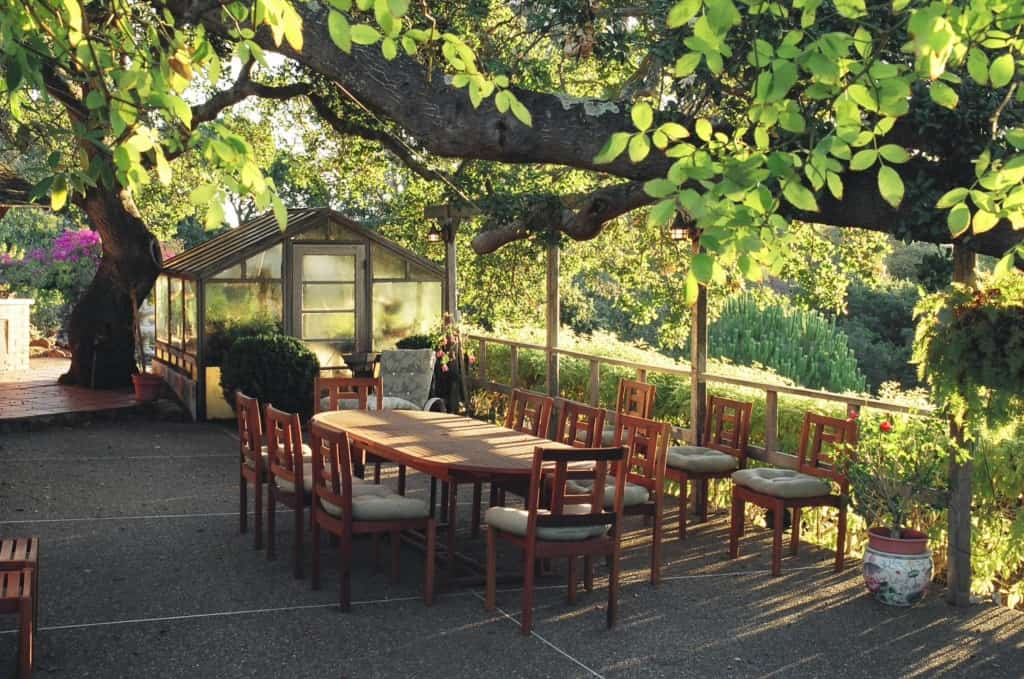Located in the serene hills of San Rafael, Bayside Marin is California’s premier rehabilitation center dedicated to the treatment of depression. Bayside Marin blends evidence-based treatments with alternative, holistic modalities to comprehensively treat all aspects of our client’s life.
Depression Treatment
Learn more about depression treatment at Bayside Marin Treatment Center in California
Depression is a potentially debilitating condition that has the potential to disrupt virtually all aspects of an individual’s life. Both major depressive disorder, which is marked by episodes of severe symptoms, and persistent depressive disorder, which includes less severe symptoms but can last for much longer periods of time, can impair a person’s ability to maintain healthy relationships, be productive in school or at work, and enjoy the many pleasures of life.
When depression co-occurs with substance abuse, addiction, or other behavioral health issues, the impact can be devastating. Thankfully, Bayside Marin Treatment Center in California has developed a residential treatment model that has proved to be highly effective in helping adults overcome addiction, depression, and any other co-occurring disorders with which they are struggling. At Bayside Marin’s rehab, we integrate time-tested techniques with emerging therapeutic modalities in order to create comprehensive holistic treatment plans that are designed to provide long-term solutions for complex challenges.
From meeting clients’ immediate needs by providing comprehensive detox to helping them achieve long-term success through ongoing recovery support, Bayside Marin is uniquely prepared to provide a full continuum of treatment services for addiction, depression, and related conditions.
How to Help a Loved One
Helping a loved one get treatment for depression
Watching a loved one struggle with depression can be a wrenching experience. For many people, the despair of watching a loved one in pain is compounded by the belief that they are powerless to provide any meaningful assistance or support. The truth is that, while depression cannot be cured via the efforts of well-intentioned friends or family members, you can take action that will make a positive difference in your loved one’s life:
- Educate yourself. The more you learn about depression, the better you will be prepared to provide meaningful support. The simple realization that your loved one is suffering from a very real mental health issue can be a valuable first step.
- Learn about treatment. Depending upon the nature and severity of your loved one’s depression, viable treatment options can range from a few sessions with a qualified therapist to an extended stay in a residential treatment program. By understanding the scope of services that are available to your loved one, you will be in the best position to offer effective advice.
- Do not judge. People who are struggling with addiction or depression are not demonstrating a lack of character; instead, they are fighting against particularly insidious disorders.
- Be present (Part I): This advice can be taken two ways. First, maintain an active presence in your loved one’s life. Volunteer to drive him or her to appointments, stay in touch via calls, texts, or emails, and otherwise let him or her know that you are there and you care.
- Be present (Part II): The second interpretation of “be present” is to focus on today and the short-term successes that can lead to long-term recovery. Do not dwell on past failures or disappointments, and do not look too far down the road. Recovery can be a daunting challenge, which is why “one day at a time” is a common mantra. Be here now and encourage your loved one to do the same.
- Remain a constant source of encouragement and support for your loved one at all times. Treatment is an important step, but it is just a step. Be there for the long haul.
Why Consider Treatment
Why consider treatment for depression at Bayside Marin Treatment Center in California
Left untreated, depression can have a powerfully negative impact on a person’s life. Depression can erode a person’s physical stamina, cognitive acuity, and emotional stability. Depression symptoms, such as profound sadness, pervasive hopelessness, low self-esteem, and suicidal ideation, can undermine a person’s desire and ability to live a happy, healthy, or productive life. Depression has been associated with a range of unhealthy disorders, issues and outcomes, including substance abuse, addiction, low self-esteem, insomnia, fatigue, eating disorders, overweight/obesity, gastrointestinal distress, and suicide attempts. When depression co-occurs with alcoholism or another form of addiction, the symptoms of both the addiction and depression can be exponentially worsened. Not only does depression cause significant damage, but it deceives sufferers into believing either that no help is available or that they are not worthy of that help. This may be the cruelest aspect of depression, as it has been well established that, with appropriate professional help, depressed individuals can and do overcome the limitations of their disorder and resume their pursuit of brighter futures.
Types of Treatment
Types of depression treatment offered at Bayside Marin Treatment Center in California
Bayside Marin provides world-class treatment for adults, aged 18 and above, who are struggling with substance abuse/addiction and co-occurring mental health or behavioral health issues, such as depression. Bayside Marin is dedicated to providing life-changing care in an atmosphere of comfort, support, and serenity. Our science-based, research-supported treatment model features both time-tested techniques and emerging modalities, blended into comprehensive plans that are customized to meet the unique needs of each client.
When clients choose to heal at our rehab center, they enter into active collaboration with a team of highly skilled professionals who are dedicated to helping them identify, address, and ultimately overcome the issues that have been preventing them from living happier and healthier lives. Not content merely to alleviate symptoms, the Bayside treatment team focuses developing effective solutions for the underlying issues that have been the root cause of our clients’ distress.
For example, when a Bayside client is diagnosed with chemical dependency and co-occurring depression, we will develop a holistic course of treatment that incorporates a variety of therapeutic activities that are designed to address both conditions at their fundamental levels. Recognizing that residential treatment is just one step on the path of long-term recovery, our experts ensure that clients have the skills, strategies, and support to continue their recovery after they have returned home.
The following are some of the many treatment opportunities that may be included in a client’s experience at Bayside Marin. This is not intended as a comprehensive list of all services that are available at Bayside; rather, it is designed to reflect the breadth and depth of options that are available to help our clients meet their treatment goals:
Detoxification: Clients who have been unable to stop abusing drugs prior to enrolling in Bayside Marin can complete a safe detox on our campus. Detoxification services at Bayside Marin begin with a consultation and complete assessment, conducted by either a board-certified medical doctor or nurse practitioner. Round-the-clock supervision and monitoring are provided by experienced professionals throughout the entire detox process.
Medication management: Medication management to help clients who are dealing with depression and other co-occurring conditions is available when determined to be medically necessary. Mental health clients at Bayside Marin Rehab Center have regular meetings with a psychiatrist, and have access to nurses at all times to meet any medication-related needs.
Individual therapy: Individual therapy is one of the fundamental treatment experiences at Bayside Marin. All clients meet with their therapist for one-on-one sessions two times each week, with additional sessions available as needed. During individual therapy sessions, clients have the opportunity to evaluate their progress, identify any issues or concerns they have about their treatment, and receive guidance on how best to address personal obstacles or complications that are preventing them from meeting their treatment goals.
Couples and family therapy: Couples therapy and family therapy are forms of group therapy that are available to Bayside Marin clients on an as-needed basis. All Bayside clients work closely with a primary therapist, who will determine the need for couples or family sessions and who can schedule these sessions. Because we understand the impact that addiction, depression, and other co-occurring conditions can have on families and other close interpersonal relationships, Bayside places a premium on providing services that can help heal this damage.
Family program: In addition to providing family therapy sessions as needed, Bayside has also developed a highly effective family program to help spouses, parents, and others address their own needs and prepare themselves to be sources of ongoing support as their loved one pursues long-term recovery. The Bayside family program is a two-day psychoeducational workshop that is offered twice each month. The family program helps loved ones understand the disease of addiction and recognize how they have been affected by their family member’s disorder, then helps them to develop skills and strategies to address both their personal issues as well as their family member’s struggles. In addition to the education offered during family program weekends, the experience is also an invaluable tool for breaking through the isolation that can often accompany addiction and bonding with others who are having similar struggles within their own families.
Group therapy: Group therapy is another core component of treatment at our depression treatment center. Bayside clients participate in several forms of group therapy on a daily basis, which allows them to reap the many benefits of this type of therapy while also learning a great deal about issues and topics that are important to the healing process. Group therapy participants have the opportunity both to receive and provide support, as well as learn from the experiences of others while also sharing insights that they have developed. Group therapy sessions at Bayside Marin will focus on a variety of topics, including self-help techniques, education about the disease of addiction, relapse prevention tips, treatment planning, continuing care planning, and family support.
Experiential therapy: In contrast to traditional individual and group therapy sessions, which usually focus on discussion, experiential therapy is a more active experience. For example, art therapy and therapeutic gardening allow clients to express themselves and address issues via more creative endeavors, while massage therapy, acupuncture, and meditation are designed to promote mindfulness and the mind-body connection. At Bayside Marin’s rehab & treatment center, yoga and Qi Gong are available every day, while other forms of experiential therapy are usually offered on a weekly basis.
Continuing Care
Continuing care and levels of treatment for depression
At Bayside Marin’s depression treatment center, planning for clients’ lives after they complete residential treatment starts on the day they arrive. Because most of the issues and disorders that our clients are dealing with necessitate long-term or lifelong recovery efforts, it is essential that we develop treatment plans with an eye toward how best to maintain and enhance their residential progress when our clients return home.
Bayside clients meet with continuing care coordinators within their first week in treatment, and touch base with them on a regular basis throughout their time with us. By the time they have completed the residential phase of their treatment, all Bayside clients will have comprehensive continuing care plans in place. Depending upon the unique needs of the client, these plans may include referrals to community based resources, appointments with counselors or therapists, participation in local support groups, and other such details. The goal for this intensive planning is to make the transition from residential care to post-residential recovery as seamless and successful as possible.
But the continuing care support provided by Bayside Marin does not end with the development of this plan. For 12 months after their discharge, Bayside clients receive recovery monitoring, life coaching services, and other forms of support to help them build a solid foundation for lifelong recovery. All services during the 12 months of continuing care support are determined and provided on a case-by-case basis, and are customized to reflect the unique strengths and needs of each client.
When clients who have completed treatment feel that they need some additional support in their recovery, our Recovery and Renewal program allows them to return to our program for day or two. By participating in the therapeutic milieu and connecting with others in the Bayside recovery family, program alumni can get the essential boost that they need to stay strong in their recovery.
When clients choose Bayside Marin Treatment Center in California, they do not just enter a treatment program – they join a healing community that is dedicated to helping them achieve long-term recovery. Residential clients, program alumni, and family members both benefit from and contribute to this vibrant and dynamic community, which extends far beyond the borders of the Bayside campus and which offers a lifelong source of life-affirming support.














